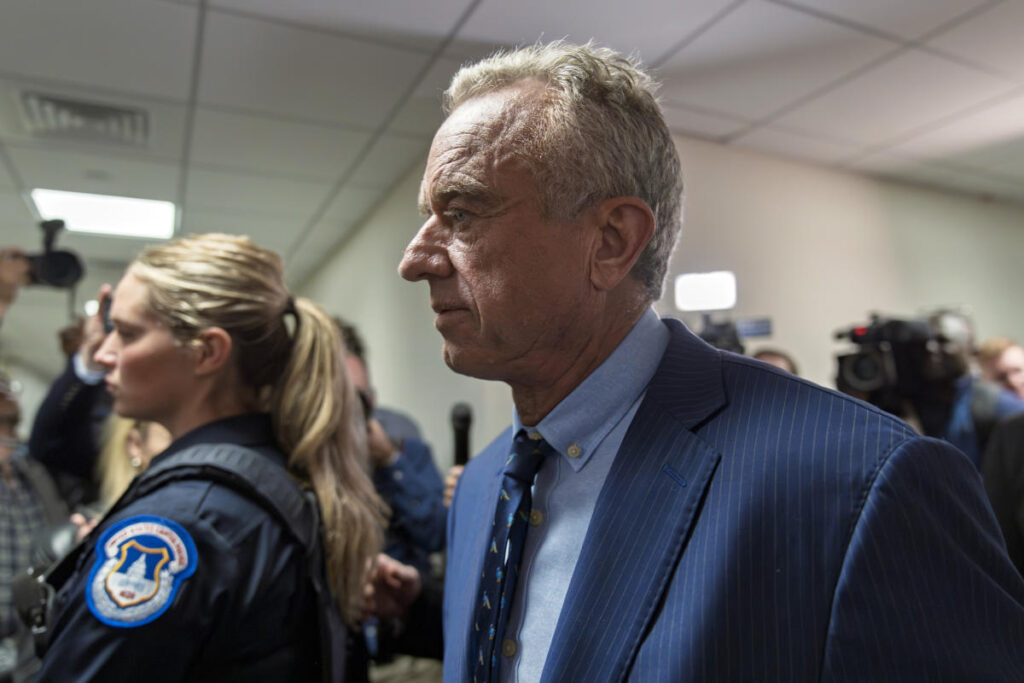Republican senators are rallying behind Robert F. Kennedy Jr., a renowned environmentalist and controversial figure due to his anti-vaccine activism and pro-abortion rights stance, as he seeks to lead the government’s health agencies. While Kennedy’s confirmation is not guaranteed, many Republicans have downplayed their differences with him, emphasizing shared goals such as the need for a comprehensive overhaul of the public health bureaucracy and a challenge to what they perceive as the misguidance of health officials during the COVID-19 pandemic. Sen. Markwayne Mullin (R-Okla.) has expressed strong confidence in Kennedy’s confirmation, stating, “Bobby’s going to get confirmed,” highlighting how engaging with him positively influences perceptions.
Kennedy’s unexpected emergence as a Republican ally stems from his recent endorsement of Donald Trump, which has altered the political landscape significantly. Only a year ago, this alliance would have seemed unimaginable as Kennedy was viewed as part of the Democratic establishment, being the scion of an iconic American political family. However, Trump’s influence is reshaping GOP dynamics, with many Republicans willing to overlook their previous critiques of Kennedy, illustrating how populist sentiments can eclipse traditional conservative values within the party.
Among those publically supporting Kennedy is Sen. James Lankford (R-Okla.), who aligns with anti-abortion views and believes that Kennedy will adhere to Trump administration directives on the matter. Kennedy has shifted his stance on abortion, recently indicating a preference for states to determine regulations rather than enforcing federal restrictions. He champions medical freedom and bodily autonomy as core tenets, which resonates with some Republicans who prefer a less federally driven approach to contentious social issues.
Sen. Tommy Tuberville (R-Ala.) also shows support for Kennedy after discussions aligning their views on abortion rights, particularly following the demise of Roe v. Wade. Tuberville expressed satisfaction with Kennedy’s commitment to allow states to decide their abortion laws. This sentiment of compromise is echoed by long-time Republican figure Chuck Grassley, who, despite initial reservations about Kennedy’s agricultural policies, acknowledges the necessity of reform within federal health agencies and is willing to overlook some disagreements for the greater goal of bureaucratic change.
However, some Republicans are wary of Kennedy’s anti-vaccine positions, highlighting that this may pose significant challenges during his confirmation process. Senate Minority Leader Mitch McConnell has expressed concerns, referencing reports about Kennedy’s commentary on vaccines while noting his own experience with polio as a child. Kennedy’s statements and history fuel skepticism among certain party members, making him vulnerable to opposition, especially as the GOP Senators can afford only a slim margin of dissent.
Despite pushback regarding his vaccine views, some Republican senators, inspired by Trump, are framing Kennedy’s agenda as one focused on enhancing transparency around vaccine safety rather than outright opposition. Sens. like Rick Scott (R-Fla.) advocate for Kennedy’s vision to assess the pros and cons of vaccines to foster public trust. The increasing acceptance of Kennedy within certain GOP circles prompts a redefinition of coalition dynamics, raising the question of whether Kennedy’s ideology can coexist with the party’s traditional values or catalyze a more profound transformation in Republican policy orientation.

